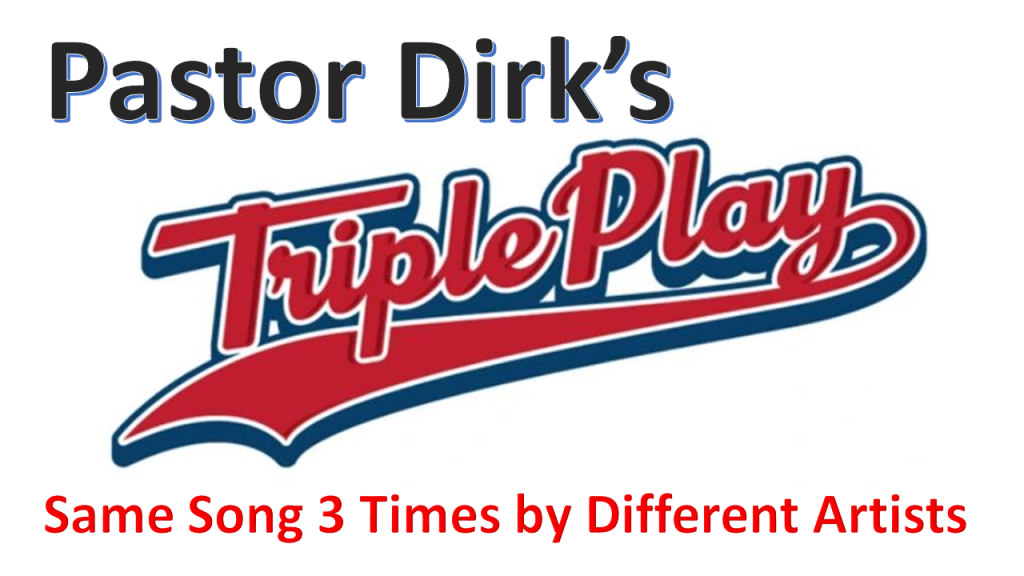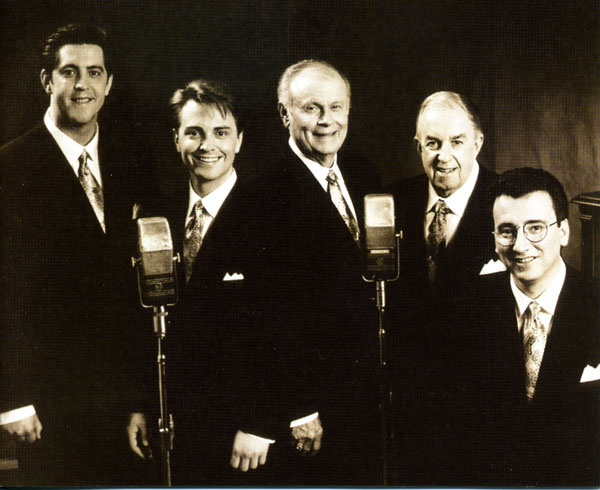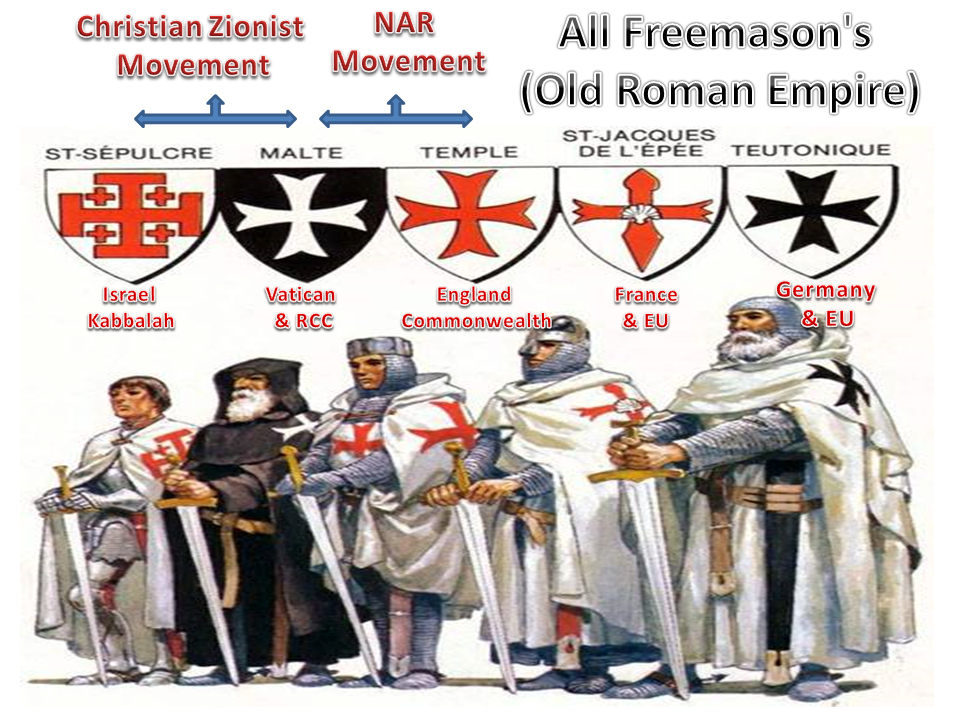Hosted by TruLight Ministries – The Place of Truth

Jesus said, “Then I will tell them plainly, ‘I never knew you. Away from me, you evildoers!’” (Matthew 7:23). It seems strange to hear our all-knowing Lord say there’s something—or someone—He doesn’t know. Jesus refers not to an intellectual knowledge here but to a relational knowledge.
To understand a verse, always start with the context. Jesus is wrapping up His Sermon on the Mount with a final warning about true faith. Jesus predicts that false Christian prophets will be coming as wolves in sheep’s clothing (Matthew 7:15). They may use all the right “God talk” and even make impressive displays of power, but they will not belong to the Lord:
“Not everyone who says to me, ‘Lord, Lord,’ will enter the kingdom of heaven, but only the one who does the will of my Father who is in heaven. Many will say to me on that day, ‘Lord, Lord, did we not prophesy in your name and in your name drive out demons and in your name perform many miracles?’ Then I will tell them plainly, ‘I never knew you. Away from me, you evildoers!’” (Matthew 7:21–23).
In Jesus’ words on Judgment Day, we see several important truths: it’s not a verbal claim that one follows Jesus that saves (Matthew 7:21). Nominal Christianity cannot save. Also, it’s not a demonstration of spiritual insight or power that saves (verse 22). A person can seem like a Christian in the eyes of other people, yet still be an “evildoer” in God’s sight and sent away from His presence (verse 23). Only those who do the Father’s will and who are known of God will enter heaven.
So, what is the Father’s will? Some men came to Jesus once with a question about what God required of them: “They asked him, ‘What must we do to do the works God requires?’ Jesus answered, ‘The work of God is this: to believe in the one he has sent’” (John 6:28–29). God wants us to have faith in His Son: “This is his command: to believe in the name of his Son, Jesus Christ” (1 John 3:23). Those who are born again by faith in Christ will produce good works to the glory of God (Ephesians 2:10).
When Jesus said, “I never knew you,” to the feigned disciples, He meant that He never recognized them as His true disciples or His friends. He never had anything in common with them nor approved of them. They were no relations of His (Mark 3:34–35). Christ did not dwell in their hearts (Ephesians 3:17), nor did they have His mind (1 Corinthians 2:16). In all these ways and more, Jesus never knew them. Note that Jesus is not breaking off the relationship here—there was never a relationship to break off. Despite their high-sounding words and showy displays of religious fervor, they had no intimacy with Christ.
So it turns out that what matters isn’t so much that we know God on some level, but that God knows us. As Paul explained, “Whoever loves God is known by God” (1 Corinthians 8:3; also see Galatians 4:9). The Lord “tends His flock like a shepherd” (Isaiah 40:11), and He knows who are His sheep (John 10:14).
Those somber words “I never knew you: depart from me, ye that work iniquity” in Matthew 7:23 (KJV) show that Jesus is indeed omniscient. He did not “know” them in the sense He would if they were His followers, but He knew their hearts—they were full of iniquity! Isaiah’s condemnation of hypocrisy fits this group well: “These people come near to me with their mouth and honor me with their lips, but their hearts are far from me” (Isaiah 29:13). The evildoers whom Jesus does not know are fake Christians, false teachers, and nominal adherents of religion.
Those who are bid depart from the presence of the Lord will not partake of the blessings of the kingdom: “Outside are the dogs, those who practice magic arts, the sexually immoral, the murderers, the idolaters and everyone who loves and practices falsehood” (Revelation 22:15). They will be cast “into the darkness, where there will be weeping and gnashing of teeth” (Matthew 8:12). Those fake Christians whom Jesus says He never knew will not produce the fruit of the Spirit (Galatians 5:22–23); rather, they will produce the opposite, the works of the flesh (Galatians 5:19–21).
Jesus warns that one day He will tell a group of religious practitioners, “I never knew you.” God takes no delight in sending people to hell (2 Peter 3:9). But those who are told to depart have rejected God’s eternal purpose and plan for their lives (Luke 7:30). They have spurned the light of the gospel (2 Corinthians 4:4), choosing the darkness instead, because their deeds were evil (John 3:19). At the judgment, they try to justify themselves as worthy of heaven on the basis of their works (prophecies, exorcisms, miracles, etc.), but no one will be justified by his own works (Galatians 2:16). While claiming to do all these good works in Christ’s name, they failed to do the only work of God that counts: “to have faith in the one he sent” (John 6:29, CEV). And so Jesus, the Righteous Judge, condemns them to eternal separation from Him.
Jesus het gesê: “Dan sal Ek hulle ronduit sê: Ek het julle nooit geken nie. Gaan weg van My, julle kwaaddoeners!” (Matteus 7:23). Dit lyk vreemd om ons alwetende Here te hoor sê daar is iets – of iemand – wat Hy nie weet nie. Jesus verwys nie hier na intellektuele kennis nie, maar na relasionele kennis.
Om ‘n vers te verstaan, begin altyd met die konteks. Jesus sluit Sy Bergpredikasie af met ‘n laaste waarskuwing oor ware geloof. Jesus voorspel dat valse Christenprofete soos wolwe in skaapsklere sal kom (Matteus 7:15). Hulle mag dalk al die regte “Godspraatjies” gebruik en selfs indrukwekkende vertoon van mag maak, maar hulle sal nie aan die Here behoort nie:
“Nie elkeen wat vir My sê: ‘Here, Here,’ sal in die koninkryk van die hemele ingaan nie, maar net hy wat die wil doen van my Vader wat in die hemele is. Baie sal in daardie dag vir My sê: ‘Here, Here, het ons nie in u Naam geprofeteer en in u Naam duiwels uitgedryf en in u Naam baie wonderwerke gedoen nie?’ Dan sal Ek hulle ronduit sê: ‘Ek het julle nooit geken nie. Gaan weg van My, julle kwaaddoeners!’” (Matteus 7:21–23).
In Jesus se woorde op die Oordeelsdag sien ons verskeie belangrike waarhede: dit is nie ‘n mondelinge bewering dat ‘n mens Jesus volg wat red nie (Matteus 7:21). Nominale Christendom kan nie red nie. Dit is ook nie ‘n demonstrasie van geestelike insig of krag wat red nie (vers 22). ’n Persoon kan in die oë van ander mense soos ’n Christen lyk, maar steeds ’n “bosedaad” in God se oë wees en van Sy teenwoordigheid weggestuur word (vers 23). Slegs diegene wat die Vader se wil doen en wat deur God geken word, sal die hemel binnegaan.
So, wat is die Vader se wil? Sommige manne het eenkeer na Jesus gekom met ’n vraag oor wat God van hulle vereis het: “Hulle het Hom gevra: ‘Wat moet ons doen om die werke te doen wat God vereis?’ Jesus het geantwoord: ‘Dít is die werk van God: dat ons in Hom glo wat Hy gestuur het’” (Johannes 6:28–29). God wil hê ons moet geloof in Sy Seun hê: “Dit is sy gebod: dat ons in die Naam van sy Seun, Jesus Christus, glo” (1 Johannes 3:23). Diegene wat deur geloof in Christus wedergebore word, sal goeie werke tot eer van God verrig (Efesiërs 2:10).
Toe Jesus vir die geveinsde dissipels gesê het: “Ek het julle nooit geken nie,” het Hy bedoel dat Hy hulle nooit as Sy ware dissipels of Sy vriende herken het nie. Hy het nooit enigiets met hulle in gemeen gehad of hulle goedgekeur nie. Hulle was geen familie van Hom nie (Markus 3:34–35). Christus het nie in hulle harte gewoon nie (Efesiërs 3:17), en hulle het ook nie Sy denke gehad nie (1 Korintiërs 2:16). Op al hierdie maniere en meer, het Jesus hulle nooit geken nie. Let daarop dat Jesus nie die verhouding hier verbreek nie – daar was nooit ‘n verhouding om te verbreek nie. Ten spyte van hulle hoogdrawende woorde en pronkerige vertoon van godsdienstige ywer, het hulle geen intimiteit met Christus gehad nie.
Dit blyk dus dat wat saak maak nie soseer is dat ons God op ‘n sekere vlak ken nie, maar dat God ons ken. Soos Paulus verduidelik het: “Wie God liefhet, word deur God geken” (1 Korintiërs 8:3; sien ook Galasiërs 4:9). Die Here “versorg sy kudde soos ‘n herder” (Jesaja 40:11), en Hy weet wie sy skape is (Johannes 10:14).
Daardie somber woorde “Ek het julle nooit geken nie; gaan weg van My, julle wat die ongeregtigheid werk” in Matteus 7:23 (OAV) wys dat Jesus inderdaad alwetend is. Hy het hulle nie “geken” in die sin wat Hy sou as hulle Sy volgelinge was nie, maar Hy het hulle harte geken – hulle was vol ongeregtigheid! Jesaja se veroordeling van skynheiligheid pas goed by hierdie groep: “Hierdie volk kom nader aan My met hulle mond en eer My met hulle lippe, maar hulle hart is ver van My af” (Jesaja 29:13). Die boosdoeners wat Jesus nie ken nie, is vals Christene, valse leraars en nominale aanhangers van godsdiens.
Diegene wat beveel word om die teenwoordigheid van die Here te verlaat, sal nie deel hê aan die seëninge van die koninkryk nie: “Buite is die honde en die towery en die hoereerders en die moordenaars en die afgodedienaars en elkeen wat die leuen liefhet en beoefen” (Openbaring 22:15). Hulle sal “in die duisternis gewerp word, waar daar geween en gekners van die tande sal wees” (Matteus 8:12). Daardie vals Christene wat Jesus sê Hy nooit geken het nie, sal nie die vrug van die Gees voortbring nie (Galasiërs 5:22–23); hulle sal eerder die teenoorgestelde voortbring, die werke van die vlees (Galasiërs 5:19–21).
Jesus waarsku dat Hy eendag vir ‘n groep godsdienstige praktisyns sal sê: “Ek het julle nooit geken nie.” God skep geen behae daarin om mense hel toe te stuur nie (2 Petrus 3:9). Maar diegene wat beveel word om te vertrek, het God se ewige doel en plan vir hulle lewens verwerp (Lukas 7:30). Hulle het die lig van die evangelie verwerp (2 Korintiërs 4:4) en eerder die duisternis gekies, omdat hulle dade boos was (Johannes 3:19). By die oordeel probeer hulle hulself regverdig as waardig van die hemel op grond van hulle werke (profesieë, uitdrywings, wonderwerke, ens.), maar niemand sal deur sy eie werke geregverdig word nie (Galasiërs 2:16). Terwyl hulle beweer het dat hulle al hierdie goeie werke in Christus se naam doen, het hulle versuim om die enigste werk van God te doen wat tel: “om geloof te hê in die een wat Hy gestuur het” (Johannes 6:29). En so veroordeel Jesus, die Regverdige Regter, hulle tot ewige skeiding van Hom.

Pastor Dirk’s Triple Play Mixes Go to One Artist this week – Jimmy Swaggart that Passed on to the Place called the Sleep on the 1st of July 2025
Bible Verse and Prayer for Today

The fear of the LORD is the beginning of wisdom: and the knowledge of the holy is understanding.
Proverbs 9:10
Prayer
Lord . for somebody that Moved from Hope to Faith and from Faith to total Love in Your Kingdom . Fear of the Lord , Has changed to Godly Respect for You Lord , The Uttermost Respect I have for You the Mighty and Soverine God of the Ages gives me the wisdom and the Understanding of Your Holiness . Please let me dwell in this always and always I pray in Jesus name . Amen and Amen
Bybel Vers en Gebed vir Vandag
Die vrees van die HERE is die beginsel van wysheid, en kennis van die heilige is verstand.
Spreuke 9:10
Gebed
Here, vir iemand wat van Hoop na Geloof en van Geloof na volkome Liefde in U Koninkryk oorgegaan het. Vrees van die Here het verander na Goddelike Respek vir U, Here, die Uiterste Respek wat ek vir U het, die Magtige en Soewereine God van die Eeue gee my die wysheid en die Begrip van U Heiligheid. Laat my asseblief altyd hierin vertoef, en altyd bid ek in Jesus se Naam. Amen en Amen.

Bible Teaching of the Day
Music in the Bible
Music is an inherent part of every society. The unearthly sounds of throat-singing in Mongolia and Siberia are as important to their cultures as Bach is to European cultures or drum-driven song and dance are to Native American cultures. Since music is such an important part of life, it should not be surprising that the Bible says much about it; in fact, the longest book in the Bible is its song book—Psalms.
Psalms accounts for over 7 percent of the Old Testament. In addition to the Psalms are other song- and poetry-focused books such as Song of Solomon, Ecclesiastes, and others. In the New Testament, we have song lyrics recorded in Revelation 5, 7, and 15; the mention of Jesus and the disciples singing in Matthew 26:30; and the example of the apostles’ singing in Acts 16:25. Many people also consider Mary’s Magnificat in Luke 1:46–55 and the angels’ announcement in Luke 2:14 to be songs. The church is commanded to communicate with each other “with psalms, hymns, and songs from the Spirit. Sing and make music from your heart to the Lord” (Ephesians 5:19).
Recorded musicians and music in the Old Testament:
The first reference to a musician in the Bible is in Genesis 4:21. Jubal was the fourth generation from Adam through Cain and is recorded as “the father of all those who play the lyre and pipe.” Other early references to music include Exodus 15, which records Moses and the Israelites singing a song of victory after the overthrow of the Egyptian army in the Red Sea. At that time, Moses’ sister, Miriam, led the Israelite women “with tambourines and dancing” as she sang. When Jephthah returned from battle, Jephthah’s daughter met him with timbrels and dance in Judges 11:34. David’s victories were also celebrated in song in 1 Samuel 18:6–7.
Two of the Old Testament’s most important figures wrote songs: Moses and David. Moses has three songs recorded in the Bible: the song sung after the destruction of Pharaoh’s army (Exodus 15:1–18); a song recounting the faithfulness of God and the rebelliousness of Israel, which he sang before all the people just before his death (Deuteronomy 32:1–43); and a prayer recorded in Psalm 90.
David, “the sweet psalmist of Israel” (2 Samuel 23:1), is credited with writing about half of the 150 songs recorded in Psalms, along with some in the historical books. He was the official musician in Saul’s court (1 Samuel 16:14–23). During David’s own reign, he organized the Levitical musicians, and 1 Chronicles 15:16 and 23:5 record that more than one in ten Levites in temple service were musicians.
Other musicians include Asaph (twelve psalms), the sons of Korah (ten psalms), Solomon (two psalms and 1,005 other songs [1 Kings 4:32] and the Song of Solomon), Heman (one psalm), and Ethan (one psalm).
Music was used in conjunction with all manner of activities (Genesis 31:27; Exodus 32:17–18; Numbers 27:17; Judges 11:34, 35; Isaiah 16:10; Jeremiah 48:33). Music was used at coronations (1 Kings 1:39–40; 2 Kings 11:14; 2 Chronicles 13:14; 20:28), events in the royal court (2 Samuel 19:35; Ecclesiastes 2:8), and feasts (Isaiah 5:12; 24:8–9). It is interesting to note the connection between music and the supernatural: trumpets sounded when the walls of Jericho fell down (Joshua 6:1–20); and David played his harp to soothe Saul during demonic attacks (1 Samuel 16:14–23).
Recorded musicians and music in the New Testament:
Two of the Gospels mention the fact that Jesus and His disciples sang a hymn at the end of the Last Supper (Matthew 26:30 and Mark 14:26). Elsewhere in the Gospels, music is seen as part of mourning (Matthew 9:23) and celebration (Luke 15:25).
Paul gave instructions regarding the use of music during Christian gatherings in Ephesians 5:19 and Colossians 3:16. In Ephesians we see that addressing each other with hymns and songs is an indication of being Spirit-filled. In Colossians the same is an indication of being filled with the Word of Christ, and the songs come “from the Spirit.” In James 5:13 we have this command: “Is anyone cheerful? Let him sing praise.”
Music in the Bible – Conclusion:
Both the Old and New Testaments address music and strongly support its use in worship. The extensive anthology of actual songs found in the Old Testament indicates the importance and value God places on creative musical expression. Music’s use in worship in the church today is valuable and can honor God in a special way. Music is a communication tool. There are no New Testament instructions on the type of instruments to be used (or not used), and no particular “style” of music is recommended or forbidden. The simple command is to sing “to God with gratitude in your hearts” (Colossians 3:16).
Bybel Lering vir die Dag
Musiek in die Bybel
Musiek is ‘n inherente deel van elke samelewing. Die onaardse klanke van keelgesang in Mongolië en Siberië is net so belangrik vir hul kulture as wat Bach vir Europese kulture is, of tromgedrewe sang en dans vir Inheemse Amerikaanse kulture. Aangesien musiek so ‘n belangrike deel van die lewe is, behoort dit nie verbasend te wees dat die Bybel baie daaroor sê nie; trouens, die langste boek in die Bybel is die liedereboek—Psalms.
Psalms maak meer as 7 persent van die Ou Testament uit. Benewens die Psalms is daar ander liedere- en poësie-gefokusde boeke soos Hooglied van Salomo, Prediker en ander. In die Nuwe Testament het ons liedere wat in Openbaring 5, 7 en 15 opgeteken is; die vermelding van Jesus en die dissipels wat sing in Matteus 26:30; en die voorbeeld van die apostels se sang in Handelinge 16:25. Baie mense beskou ook Maria se Magnificat in Lukas 1:46–55 en die engele se aankondiging in Lukas 2:14 as liedere. Die kerk word beveel om met mekaar te kommunikeer “met psalms, lofgesange en liedere uit die Gees. Sing en maak musiek uit julle hart tot eer van die Here” (Efesiërs 5:19).
Opgetekende musikante en musiek in die Ou Testament:
Die eerste verwysing na ‘n musikant in die Bybel is in Genesis 4:21. Jubal was die vierde geslag van Adam tot Kain en word opgeteken as “die vader van almal wat op die lier en fluit speel.” Ander vroeë verwysings na musiek sluit in Eksodus 15, wat Moses en die Israeliete opteken wat ‘n oorwinningslied sing na die omverwerping van die Egiptiese leër in die Rooi See. In daardie tyd het Moses se suster, Miriam, die Israelitiese vroue “met tamboeryne en dans” gelei terwyl sy gesing het. Toe Jefta van die geveg terugkeer, het Jefta se dogter hom met tamboeryne en dans in Rigters 11:34 ontmoet. Dawid se oorwinnings is ook in lied gevier in 1 Samuel 18:6–7.
Twee van die Ou Testament se belangrikste figure het liedere geskryf: Moses en Dawid. Moses het drie liedere wat in die Bybel opgeteken is: die lied wat gesing is na die vernietiging van Farao se leër (Eksodus 15:1–18); ‘n lied wat die getrouheid van God en die rebellie van Israel vertel, wat hy voor die hele volk gesing het net voor sy dood (Deuteronomium 32:1–43); en ‘n gebed wat in Psalm 90 opgeteken is.
Dawid, “die lieflike psalmis van Israel” (2 Samuel 23:1), word gekrediteer met die skryf van ongeveer die helfte van die 150 liedere wat in Psalms opgeteken is, saam met sommige in die historiese boeke. Hy was die amptelike musikant in Saul se hof (1 Samuel 16:14–23). Gedurende Dawid se eie heerskappy het hy die Levitiese musikante georganiseer, en 1 Kronieke 15:16 en 23:5 teken aan dat meer as een uit elke tien Leviete in tempeldiens musikante was.
Ander musikante sluit in Asaf (twaalf psalms), die seuns van Korag (tien psalms), Salomo (twee psalms en 1 005 ander liedere [1 Konings 4:32] en die Hooglied van Salomo), Heman (een psalm) en Etan (een psalm).
Musiek is saam met allerhande aktiwiteite gebruik (Genesis 31:27; Eksodus 32:17–18; Numeri 27:17; Rigters 11:34, 35; Jesaja 16:10; Jeremia 48:33). Musiek is gebruik by kronings (1 Konings 1:39–40; 2 Konings 11:14; 2 Kronieke 13:14; 20:28), geleenthede in die koninklike hof (2 Samuel 19:35; Prediker 2:8) en feeste (Jesaja 5:12; 24:8–9). Dit is interessant om die verband tussen musiek en die bonatuurlike te let: trompette het geblaas toe die mure van Jerigo geval het (Josua 6:1–20); en Dawid het op sy harp gespeel om Saul tydens demoniese aanvalle te streel (1 Samuel 16:14–23).
Opgeneemde musikante en musiek in die Nuwe Testament:
Twee van die Evangelies noem die feit dat Jesus en Sy dissipels ‘n loflied aan die einde van die Laaste Avondmaal gesing het (Matteus 26:30 en Markus 14:26). Elders in die Evangelies word musiek gesien as deel van rou (Matteus 9:23) en viering (Lukas 15:25).
Paulus het instruksies gegee rakende die gebruik van musiek tydens Christelike byeenkomste in Efesiërs 5:19 en Kolossense 3:16. In Efesiërs sien ons dat die aanspreek van mekaar met lofgesange en liedere ‘n aanduiding is van Geesvervulling. In Kolossense is dieselfde ‘n aanduiding van vervulling met die Woord van Christus, en die liedere kom “uit die Gees”. In Jakobus 5:13 het ons hierdie opdrag: “Is iemand vrolik? Laat hom lof sing.”
Musiek in die Bybel – Gevolgtrekking:
Beide die Ou en Nuwe Testamente spreek musiek aan en ondersteun die gebruik daarvan in aanbidding sterk. Die uitgebreide bloemlesing van werklike liedere wat in die Ou Testament gevind word, dui op die belangrikheid en waarde wat God aan kreatiewe musikale uitdrukking heg. Musiek se gebruik in aanbidding in die kerk vandag is waardevol en kan God op ‘n spesiale manier eer. Musiek is ‘n kommunikasie-instrument. Daar is geen Nuwe-Testamentiese instruksies oor die tipe instrumente wat gebruik (of nie gebruik) moet word nie, en geen spesifieke “styl” van musiek word aanbeveel of verbied nie. Die eenvoudige opdrag is om “tot God met dankbaarheid in julle harte” te sing (Kolossense 3:16).

Today’s Devotional
The Bible offers many principles to aid the process of making decisions that honor God. The following list is not exhaustive, but it does represent many teachings of Scripture.
First, begin with prayer. First Thessalonians 5:16-18 says, “Rejoice always, pray without ceasing, give thanks in all circumstances; for this is the will of God in Christ Jesus for you.” If we should pray in all situations, we should certainly pray in times of decision-making. As we pray, we ask for wisdom (James 1:5).
Second, define the issue. Wise decisions are informed decisions. It is important to understand what options are available. Once the factors are known, options can be further considered and evaluated.
Third, seek biblical wisdom. Some decisions become easy, if there is one clear choice consistent with God’s Word. Psalm 119:105 says, “Your word is a lamp to my feet and a light for my path.” When we follow the teachings of God’s Word, He guides our path and provides knowledge to make wise choices.
Fourth, seek godly counsel. Proverbs 15:22 says, “Without counsel plans fail, but with many advisers they succeed.” Sometimes, consulting with a friend or family member is enough. At other times, consulting with a pastor or other trusted voice can make the difference between a harmful decision and a helpful one.
Fifth, trust the Lord with your decision. In other words, if you’ve made your decision with prayer, sound wisdom, and biblical counsel, trust God for the outcome. Proverbs 3:5-6 says, “Trust in the LORD with all your heart, and do not lean on your own understanding. In all your ways acknowledge him, and he will make straight your paths.”
Sixth, be willing to admit mistakes and adjust accordingly. In most cases, there is no wisdom in continuing down a wrong path after you have discovered it is wrong. Be willing to admit mistakes or failures and ask God for the grace to change.
Seventh, give praise to God for your success. When your decisions result in personal success, the temptation is to believe it is due to your own power, talent, or genius. However, it is God who blesses our efforts and gives strength. “A man can receive only what is given him from heaven” (John 3:27).
Vandag se Bemoediging
Die Bybel bied baie beginsels om die proses van besluitneming wat God eer, te help. Die volgende lys is nie volledig nie, maar dit verteenwoordig wel baie leringe van die Skrif.
Eerstens, begin met gebed. Eerste Tessalonisense 5:16-18 sê: “Wees altyd bly, bid sonder ophou, wees in alle omstandighede dankbaar, want dit is die wil van God in Christus Jesus vir julle.” As ons in alle situasies moet bid, moet ons beslis bid in tye van besluitneming. Terwyl ons bid, vra ons om wysheid (Jakobus 1:5).
Tweedens, definieer die saak. Wyse besluite is ingeligte besluite. Dit is belangrik om te verstaan watter opsies beskikbaar is. Sodra die faktore bekend is, kan opsies verder oorweeg en geëvalueer word.
Derdens, soek Bybelse wysheid. Sommige besluite word maklik as daar een duidelike keuse is wat ooreenstem met God se Woord. Psalm 119:105 sê: “U woord is ‘n lamp vir my voete en ‘n lig vir my pad.” Wanneer ons die leringe van God se Woord volg, lei Hy ons pad en verskaf kennis om wyse keuses te maak.
Vierdens, soek goddelike raad. Spreuke 15:22 sê: “Sonder raad misluk planne, maar met baie raadgewers slaag hulle.” Soms is dit genoeg om met ‘n vriend of familielid te konsulteer. Ander kere kan konsultasie met ‘n pastoor of ander vertroude stem die verskil maak tussen ‘n skadelike besluit en ‘n nuttige een.
Vyfdens, vertrou die Here met jou besluit. Met ander woorde, as jy jou besluit met gebed, goeie wysheid en Bybelse raad geneem het, vertrou God vir die uitkoms. Spreuke 3:5-6 sê: “Vertrou op die HERE met jou hele hart en moenie op jou eie insig staatmaak nie. Ken Hom in al jou weë, en Hy sal jou paaie gelykmaak.”
Sesdens, wees bereid om foute te erken en dienooreenkomstig aan te pas. In die meeste gevalle is daar geen wysheid daarin om voort te gaan op ‘n verkeerde pad nadat jy ontdek het dat dit verkeerd is nie. Wees bereid om foute of mislukkings te erken en God vir die genade te vra om te verander.
Sewende, prys God vir jou sukses. Wanneer jou besluite tot persoonlike sukses lei, is die versoeking om te glo dat dit te danke is aan jou eie krag, talent of genialiteit. Dit is egter God wat ons pogings seën en krag gee. “’n Mens kan net ontvang wat hom uit die hemel gegee is” (Johannes 3:27).
The Collectors of Manna – Women of the Word // Gaarders van Manna – Vroue van die woord

Dilize Light has Managed a TruLight Ladies Group on Telegram for the Past 6 Years and from Today . she will be Sharing her Manna with the Ladies in The TruLight Daily Manna Platform . Dilize is the only Daughter of Pastor Dirk and has been part of the Ministry since the age of 11 . Dilize is also the Radio Host for the Popular TruLight Top 10 that airs on TruLight Radio XM saturdays at 17h00′
Dilize Light bestuur die afgelope 6 jaar ‘n TruLight Damesgroep op Telegram en van vandag af sal sy haar Manna met die Dames deel op die TruLight Daaglikse Manna-platform. Dilize is die enigste dogter van Pastoor Dirk en is deel van die bediening sedert die ouderdom van 11. Dilize is ook die radio-aanbieder vir die gewilde TruLight Top 10 wat Saterdae om 17:00 op TruLight Radio XM uitgesaai word.
Neem Tyd Om Na Te Dink:
Ouers hou daarvan om al die belangrike stadiums in die ontwikkeling van hulle baba’s te onthou. Hulle het dikwels ń spesiale boek waarin hulle aanteken wanneer die baba die eerste keer omgerol het, gekruip het, en eindelik die eerste treë gegee het. Soms sal hulle foto’s neem, of selfs kleertjies van die kleinding bêre, om hulle aan die kosbare gebeure te herinner.
Volgens die evangelie van Lukas ( Luk 2:19 ), het Maria ook ń gedenkboek gehou in haar hart. Sy het oor al die beloftes wat aangaande haar Seun gegee is, nagedink. Dit was vir haar kosbaar. Die Griekse woord wat met “nagedink” vertaal is, beteken eintlik om te vergelyk. Maria het wonderlike dinge oor haar Seun van die engele en skaapwagters gehoor ( Luk 1:32;2:17,18 ). Namate Hy gegroei het, en sy lewe ontvou het, het sy daardie beloftes onthou en gekyk hoe Hy dit in die lewe tot uitvoer gebring het.
Ons geloof sal versterk en bemoedig word as ons oor die Skrif mediteer, en veral oor die Here en hoe sy werke in ons lewens uitgevoer word (Joh 14:21). Hy is ń God wat gebede beantwoord (1 Joh 5:14,15), ons vertroos wanneer probleme opduik ( 2 Kor.1:3,4) en in al ons behoeftes voorsien (Filip 4:19).
Indien ons tyd neem om oor alles na te dink, sal ons die getroue liefde van ons groot God raaksien en waardeer.
God gee beloftes wat ons in die geloof kan aanneem.
Take Time to Reflect:
Parents love to remember all the important stages in their baby’s development. They often have a special book in which they record when the baby first rolled over, crawled, and finally took his first steps. Sometimes they will take pictures, or even save pieces of the little one’s clothes, to remind them of these precious events.
According to the Gospel of Luke (Luke 2:19), Mary also kept a book of remembrance in her heart. She pondered over all the promises made concerning her Son. They were precious to her. The Greek word translated “pondered” actually means to compare. Mary heard wonderful things about her Son from the angels and shepherds (Luke 1:32;2:17,18). As He grew and His life unfolded, she remembered those promises and watched Him fulfill them in life.
Our faith will be strengthened and encouraged as we meditate on the Scriptures, and especially on the Lord and how His works are carried out in our lives (John 14:21). He is a God who answers prayers (1 John 5:14,15), comforts us when problems arise (2 Cor.1:3,4), and supplies all our needs (Philippians 4:19).
If we take time to think about everything, we will see and appreciate the faithful love of our great God.
God gives promises that we can accept in faith.
Vroue in die Bybel—Wat kan ons by hulle leer?
Vandag = Ragab
Wie was Ragab? Sy was ‘n prostituut wat in die Kanaänitiese stad Jerigo gewoon het, en sy het ‘n aanbidder van Jehovah God geword.
Wat het sy gedoen? Ragab het twee Israeliete weggesteek wat die land verken het. Sy het dit gedoen omdat sy berigte gehoor het van hoe Israel se God, Jehovah, sy volk uit Egipte en later van ‘n aanval deur ‘n stam genaamd die Amoriete verlos het.
Ragab het die spioene gehelp en hulle gesmeek om haar en haar gesin te spaar toe die Israeliete Jerigo wou vernietig. Hulle het ingestem, maar op sekere voorwaardes: Sy sou hul sending geheim hou, sy en haar gesin sou in haar huis bly wanneer die Israeliete aanval, en sy sou ‘n skarlakenrooi koord aan haar venster hang om haar huis te identifiseer. Ragab het elke opdrag gehoorsaam, en sy en haar gesin het oorleef toe die Israeliete Jerigo verower het.
Ragab het later met ‘n Israeliet getrou en ‘n voorouer van beide koning Dawid en Jesus Christus geword.—Josua 2:1-24; 6:25; Matteus 1:5, 6, 16.
Wat kan ons by Ragab leer? Die Bybel verwys na Ragab as ‘n uitstaande voorbeeld van geloof. (Hebreërs 11:30, 31; Jakobus 2:25) Haar verhaal illustreer dat God beide vergewensgesind en onpartydig is en diegene seën wat op Hom vertrou, ongeag hul agtergrond.

Women in the Bible—What Can We Learn From Them?
Today = Rahab
Who was Rahab? She was a prostitute who lived in the Canaanite city of Jericho, and she became a worshipper of Jehovah God.
What did she do? Rahab hid two Israelites who were spying out the land. She did this because she had heard reports of how Israel’s God, Jehovah, delivered his people from Egypt and later from an attack by a tribe called the Amorites.
Rahab helped the spies and pleaded with them to spare her and her family when the Israelites came to destroy Jericho. They agreed, but on certain conditions: She would keep their mission secret, she and her family would remain inside her house when the Israelites attacked, and she would hang a scarlet cord from her window to identify her home. Rahab obeyed every instruction, and she and her family survived when the Israelites captured Jericho.
Rahab later married an Israelite and became an ancestress of both King David and Jesus Christ.—Joshua 2:1-24; 6:25; Matthew 1:5, 6, 16.
What can we learn from Rahab? The Bible refers to Rahab as an outstanding example of faith. (Hebrews 11:30, 31; James 2:25) Her story illustrates that God is both forgiving and impartial, blessing those who trust in him, regardless of their background.

TruLight Ministries Daily Entertainment

TruLight TV = God’s Great Creation – Fascinating World of The High Mountains
You’re not a bad or mean person for saying no. In fact, learning to say no allows you to say yes to God more often. If you struggle with boundaries and over committing, watch this video and learn why God prefers you to say no instead of jeopardizing breaking a promise. and later a Nature Documentary in title (Magic of the Mountains) – This is the story of a land, where forces of nature are at play – beyond all things that a human can ever dominate or be able to conquer. The birth of Tyrol was one of collisions, where previous far apart continents were conjoined, wedged together and piled up on top of each other. The result is a steep world of diversity on the smallest area: depending on the depth of a valley or the height of a mountain ridge, depending on its direction and position at the edge or in the middle of the Alps, depending on whether its slope is steep or flat, there is a spot in Tyrol that is icy or mild, lush or paltry, dry or full of water. This film presents the fascinating world of the high mountains with all their diverse flora and fauna and the living conditions throughout the seasons. The point of this Nature Documentary is based on the Bible Verse in Psalm 91;1 – The Heavens Declare the Glory of God; The Skies Proclaim the Work of His Hands. Enjoy today’s show and thanks for watching.
INTRODUCTION TO THE GOSPEL ARTISTS of THE PAST
MEET : The Late Cathedral Quartet = Musical Gospel quartet – 1964 – 1999

The Cathedral Quartet, also known as the Cathedrals, was an American southern gospel quartet who performed from 1964 to December 1999. The group’s final lineup consisted of Glen Payne (lead), George Younce (bass), Ernie Haase (tenor), Scott Fowler (baritone and bass guitar), and Roger Bennett (piano and rhythm guitar).
History
Formation and early years
The Cathedrals formed in 1963 as a trio consisting of the California Weatherford Quartet lead singer Glen Payne, tenor Bobby Clark, and baritone Danny Koker. Initially a house group of Rex Humbard’s Cathedral of Tomorrow, they called themselves the Cathedral Trio. The group became a quartet with the addition of Blue Ridge Quartet bass singer George Younce in 1964. They decided to become a full-time touring group in 1969, leaving the Cathedral of Tomorrow. Koker and Clark left the group to pursue other interests, and were replaced by tenor Mack Taunton and baritone-pianist George Amon Webster. The group signed with Canaan Records; Canaan producer Marvin Norcross worked with them and Florida Boys lead singer Les Beasley to help the group gain exposure. Norcross gave them performance time on the nationally syndicated television The Gospel Singing Jubilee. With Canaan, the group experimented with different styles of dress and performance to find their identity.
Rise to prominence
Gospel singer Bill Gaither invited the group to perform at his annual Praise Gathering in Indianapolis, and they received more requests for appearances. Gaither collaborated with Younce and Payne to produce their future albums for Word Records. The group began incorporating Younce and Payne’s comedy routines, and added Roy Tremble as a tenor. Tremble, Webster, and pianist Lorne Matthews left the group and started their own trio called “The Brothers” in 1979. Their first replacement, Kirk Talley of the Hoppers, was a tenor; Steve Lee was added to sing baritone and play piano. Shortly before 1980, the group hired Roger Bennett as their pianist after hearing him play for their opening act. Lee left the group, and former member Roger Horne filled in briefly before Kingsmen bass guitarist and baritone Mark Trammell joined the group. In 1983 they left Canaan (Word), and signed with Riversong (Benson).
1980s
Talley left the group in the summer of 1983 to form the Talleys with his brother, Roger, and sister-in-law, Debra. Danny Funderburk of the Singing Americans was chosen to replace him in December of that year. This lineup remained in place for several years, until Bennett left to help found Journey Records. Bennett was replaced by young, classically trained pianist and vocalist Gerald Wolfe. With Wolfe at the piano and singing, the group contributed to Symphony of Praise a 1987 album with the London Philharmonic Orchestra. The album included “This Ole House”, “Champion Of Love”, “I Can See The Hand” (written by Steven Curtis Chapman), and “I’ve Just Started Living”. During this period, the group added Trammell’s bass guitar and a synthesizer to its quartet vocals.
1990s: Gaither Homecoming years
In February 1990, Funderburk left to help form the quartet Perfect Heart. The Cathedrals hired tenor Kurt Young to replace him, but Young left the quartet after two months. Young was replaced by Ernie Haase, a young tenor from Indiana. Later that year, Trammell left to form Greater Vision with Gerald Wolfe. Scott Fowler, former lead singer of the Sound, became the quartet’s baritone and bass guitarist; this was the final version of the Cathedrals. The full group (including present and former members, except for Danny Koker, Roger Horne, Lorne Matthews, Bill Dykes, Jim Garstang, Steve Lee and Kurt Young) recorded a concert, The Cathedral Quartet: A Reunion, in 1995.
Bill Gaither and the Gaither Vocal Band recorded Homecoming, a tribute to Southern gospel music, during the early 1990s. Gaither enlisted George Younce and Glen Payne for the album (which inspired the Gaither Homecoming videos), and the Cathedral Quartet was included on later videos in the series. In addition to touring and appearing in the Gaither Homecoming videos, the group appeared three times on NBC’s Today show during the decade.
Final years and farewell tour
Younce and Payne’s health began to decline; Younce had kidney failure and heart disease by 1999, and Payne was diagnosed with liver cancer. They decided to disband the group after a farewell tour, as the group’s health permitted. The Gaithers and the Cathedrals recorded a live Cathedrals Farewell Celebration video on May 18, 1999, on which they were joined by The Statler Brothers, The Oak Ridge Boys, Sandi Patty, Guy Penrod, and the Gaither Vocal Band. The Cathedrals would make their final appearance at the National Quartet Convention without Payne. During a performance Payne called via telephone from his hospital bed, he sang the song I Won’t Have to Cross Jordan Alone to which the audience gave him a standing ovation at the end.
Today on TruLight Radio XM

TruLight Radio XM 24/7
Program
GMT / UTC +2
Monday To Fridays
00:15 Words to Live By Testimonies
01.15 Science Scripture and Salvation
02.15 Ground Works
04.00 Gospel Concert of the Day
05.00 The Daren Streblow Comedy Show
5:55 It is Today devotional
6:00 Gaither Homecoming Morning Show
7:15 Discover the Word
8.15 Destined for Victory
8:55 Science Scripture and Salvation
9:00 Holy Spirit Hour – Normally Sermons
10:15 Hope of the Heart
11:15 Unshackled
11.45 Words to Live By
12:15 Truth for Life
13:15 Living on the Edge with Chip Ingram
14:15 Focus on the Family
15:00 Kids Hour
16:00 In Touch with Dr. Charles Stanley
16:30 Groundwork
17:15 Live in the Light
18:15 Renewing your Mind
19:00 Gaither Homecoming Show
20:15 Growing Hope
21:15 Adventures in Odyssey Radio Drama
21:45 Bible Reading
22:15 Nightsounds
23.00 Good Old Country Gospel / Rhema Gospel Express
VISIT THE WEBSITE
https://TruLightRadioXM.org.za

Bible Prophecy in the News
From Japan To The U.S – Earthquake Fault Lines Are Awakening

Is there a possibility that a cataclysmic eruption of Mt. Rainier could occur in the not too distant future? On Tuesday morning, Mt. Rainier was shaken by over 400 earthquakes. It was the largest earthquake swarm that we have seen at Mt. Rainier since 2009.
Defend the Word Week Reveals the Prophetic War Behind Iran’s Hatred of Israel

Why does Iran spend billions funding terror groups to destroy Israel? Why is the Jewish state condemned in international courts while rockets fall on its cities? Why has the Bible become such a lightning rod in public discourse?
Eze 39:7 So will I make my holy name known in the midst of my people Israel; and I will not let them pollute my holy name any more: and the heathen shall know that I am the LORD, the Holy One in Israel.
Eze 39:8 Behold, it is come, and it is done, saith the Lord GOD; this is the day whereof I have spoken.
Signs of the Times
The Digital Trap: Europe’s Quiet March Toward Total Control

Imagine a world where every transaction you make, every website you visit, every thought you dare to express online is silently recorded, cross-checked, and stored–not just by tech giants, but by your government.
Shepherds Without Scripture: What Do Today’s Pastors Really Believe?

One in four Mainline clergy doubt the existence of God. These aren’t fringe bloggers or deconstructing TikTok influencers. These are the men standing behind pulpits every week.
World Joins in Prayer for Texas Flood Tragedy

Governor Gregg Abbott declared a day of prayer in Texas in response to the devastating floods that swept through Central Texas and the Hill Country over the Fourth of July holiday weekend.
Mat 24:7 For nation shall rise against nation, and kingdom against kingdom: and there shall be famines, and pestilences, and earthquakes, in divers places.
Mat 24:8 All these are the beginning of sorrows.

The Doctrine of Demons called Christian Zionism are Growing
The Faces of the Riders of the Strongest Doctrine of demons currently in the wide World = Christian Zionism = a Joint Venture between the Malta (Malte) Knights and the Suplicar (St-Sepilcre) knights of Israel from the Round Table of The Holy Roman Empire.


Netanyahu Surprises President Trump with Nomination for Nobel Peace Prize

“Our teams together make an extraordinary combination to meet challenges and seize opportunities,” the prime minister said.
1Th 5:3 For when they shall say, Peace and safety; then sudden destruction cometh upon them, as travail upon a woman with child; and they shall not escape.
Gog and Magog Update
Israel and the United States are working together closely to promote President Donald Trump’s Gaza migration plan, and to find third-party countries willing to take in large numbers of Gazans, Prime Minister Benjamin Netanyahu said on Monday.

Speaking at the beginning of a dinner meeting with Trump and other senior administration officials at the White House, Netanyahu told reporters that the U.S. and Israel are “getting close” to finding nations willing to taken Gaza refugees.
“We’re working with the United States very closely about finding countries that will seek to realize what they have always said, to give the Palestinians a better future. I think that we are getting close to finding several countries.”
President Trump echoed Netanyahu’s optimism, hinting at major developments regarding his Gaza plan.
“Something good will happen,” the president said.
Netanyahu also reiterated his support for President Trump’s Gaza migration plan, first unveiled during Netanyahu’s visit to Washington in February, under which Gazans would be encouraged to migrate abroad en masse, with the coastal enclave becoming an American-run free trade zone.
Dan 11:32 And such as do wickedly against the covenant shall he corrupt by flatteries: but the people that do know their God shall be strong, and do exploits.
Dan 11:33 And they that understand among the people shall instruct many: yet they shall fall by the sword, and by flame, by captivity, and by spoil, many days.
TruLight Ministry News

TruLight Ministries orders from God since 2012 . Teach Them , Comfort Them and Warn Them!
////////////
TruLight Ministries opdrag vanaf God sedert 2012. Leer hulle, Troos hulle en Waarsku hulle!
TruLight Broadcast Network aka TruLight Ministries received the Rights to Broadcast all The Collingsworth Family Concerts on TruLight TV , ENJOY as a TruLight Friend in Jesus
Share this Feeding of Manna with your Friends and Family. just click on the Social Media icon and share !